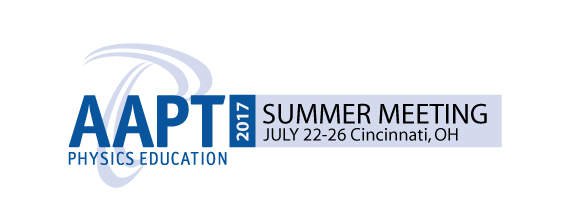Did you know?
Cincinnati is the first and only city to own their own Railroad (Cincinnati Southern 1880). — webn.iheart.com
2017 Summer Meeting Workshops
Listed below is a current list of workshops planned for the 2017 Summer Meeting. It is recommended that you register early for your workshops. Some workshops will fill-up early and others may be cancelled due to low enrollment. Some details are subject to change.
Location
Workshops will be held at the University of Cincinnati. Please click here to view a map of campus with parking options. Please click here to view the building were the workshops will be held - Braunstein Hall.
Registration
You must pick-up your registration packet at the AAPT registration desk at the RiverCenter Convention Center before heading to the University. You will not be allowed on the bus unless you are confirmed for a workshop.
Restaurants Near Campus
Click here for a list of restaurants near campus.
Transportation (Shuttle Bus)
Please click here to view the shuttle bus schedule. Please be aware that the buses will leave promptly at the times indicated. If you miss the bus you will be responsible for your own transportation.
Find out more and become a part of SM2017 on: Facebook| Twitter
Some photos courtesy of barberstock.com


